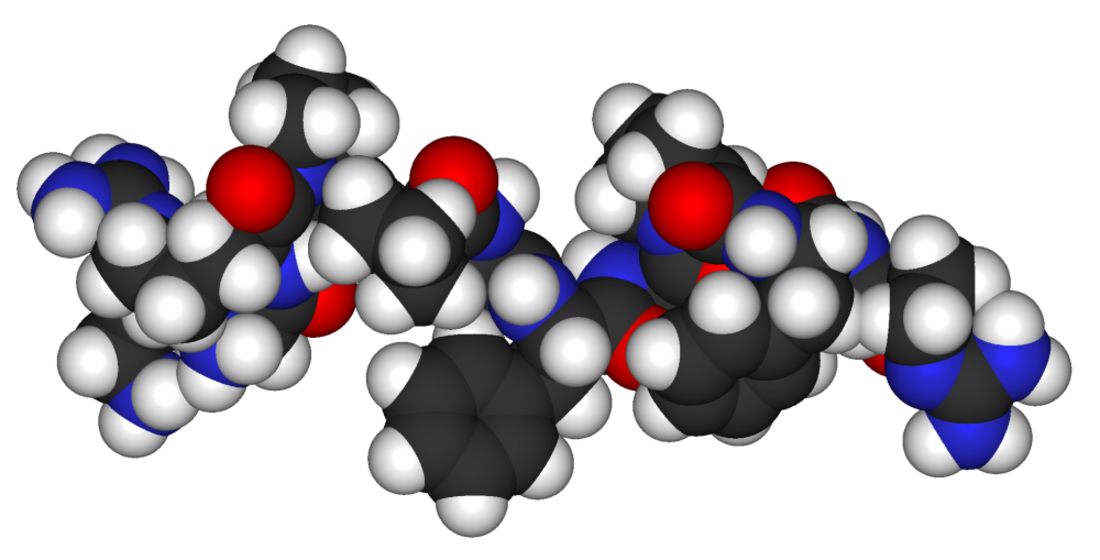Top Qs
Timeline
Chat
Perspective
Kallidin
Chemical compound From Wikipedia, the free encyclopedia
Remove ads
Kallidin belongs to the family kinins, which are the peptide hormones.[1] Kallidin is a decapeptide whose sequence is H-Lys-Arg-Pro-Pro-Gly-Phe-Ser-Pro-Phe-Arg-OH. Removal of the N-terminal lysine by Factor XII [2], or to a leser extent aminopeptidase[3] yields the potently bioactive bradykinin molecule.
Remove ads
Effects of Kinins
Kallidin is a bioactive kinin peptide formed in response to injury from kininogen precursors through the action of kallikreins.[4] Like all kinins, kallidin, the deca-peptide, plays an important role in several body pathologies. Kinins can regulate the blood pressure by increasing the level of vasopressor substances.[1][5] They can also bind to the B1 and B2 cell surface receptors, which are G-protein coupled receptors.[6] The mediation of the B1 receptors by des-Arg kinins as agonists can be expressed in several medical issues, such as cancer and trauma.[5] By binding to the B2 receptors, kinins, endogenous agonists, can regulate the vasodilatation and bronchioconstriction.[1]
Remove ads
Chemical Mechanisms
Since kinins are peptides, they can be cleaved by the peptidases. Peptidases such as the serine peptidases, carboxypeptidase N and carboxypeptidase M cleave kinins into des-Arg-bradykinin and Lys-des-Arg-bradykinin.[7][8]
Clarification
Kallidin is identical to bradykinin with an additional lysine residue added at the N-terminal end and signals through the bradykinin receptor.[citation needed]
Despite exhibiting similar functions and reactivities, kinins can be differentiated by combining an amino-terminal-directed radioimmunoassay with a carboxy-terminal-directed radioimmunoassay in combination with HPLC.[1]
See also
References
Wikiwand - on
Seamless Wikipedia browsing. On steroids.
Remove ads


